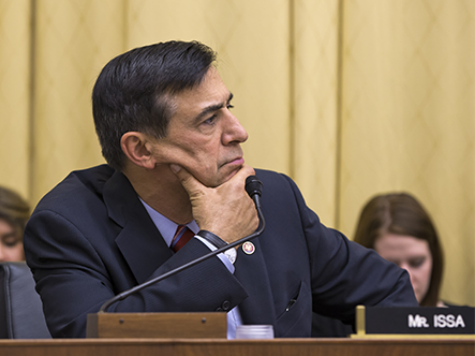A draft version of an immigration bill from Rep. Darrell Issa (R-CA) would give millions of illegal aliens permission to stay in the United States for up to six years, according to a one page outline of the bill.
The outline says employers could “sponsor” illegal alien employees for participation in the program, noting “businesses need immediate access to a legal workforce.” The bill – titled the “Alien Accountability Act” — would also include a range of restrictions on obtaining legalization, including that individuals with pending deportation cases or “insufficient proof of financial means” would not be eligible.
The Issa memo is the first detailed look at how House Republicans might provide “legal status” to illegal aliens, something Speaker John Boehner included in immigration “principles” revealed Jan. 30 but for which details have been scarce. The document was first revealed by Susan Pai, a liberal immigration attorney in Florida who slammed the proposal as “draconian” for what she perceived as its strict limitations on amnesty.
Issa is chairman of the House Oversight and Government Reform Committee, which does not have any jurisdiction on immigration, but is also a member of the House Judiciary Committee, which does.
Frederick Hill, a spokesman for Issa, said the proposal, including its title, is still being refined.
“Rep. Issa continues to update and refine a proposal, however the lack of trust in this Administration’s commitment to border security and enforcement is a substantial obstacle to achieving broader reforms. Ongoing discussions have continually identified new issues to address – key provisions and even the bill title are still under development,” Hill said.
Under the bill, illegal aliens would have a given period of time to register with the Department of Homeland Security, during which they could also chose to depart the country, the outline says.
“Aliens failing to register and cooperate with DHS have a window to depart voluntarily at the alien’s own expense. Failure to depart can result in criminal prosecution and increased civil penalties,” the outline says.
The bill would include several criteria for which aliens could not participate in the program and “would need to depart,” including pending deportation cases, a “national security risk” and “relatives of participating alien.”
Hill did not respond to a question about whether the limitation on relatives applied to relatives of a participant in the U.S. or relatives who might come illegally into the U.S. after their relative has achieved legal status. Pai, in her analysis, interpreted the language as allowing only one individual per family to apply, which she criticized as unduly harsh.
The outline also states aliens legalized under the bill would not be eligible for welfare benefits.
Lee Stranahan contributed to this report.

COMMENTS
Please let us know if you're having issues with commenting.